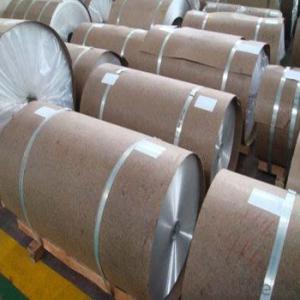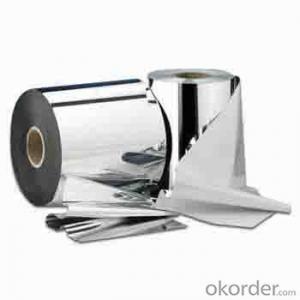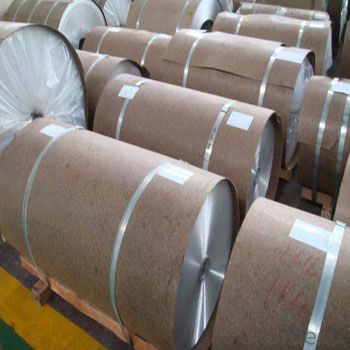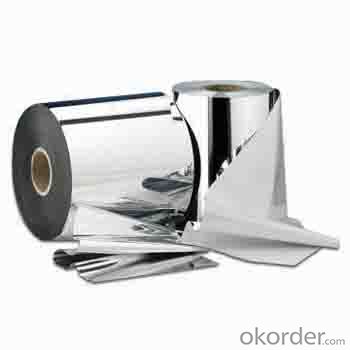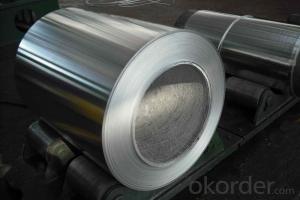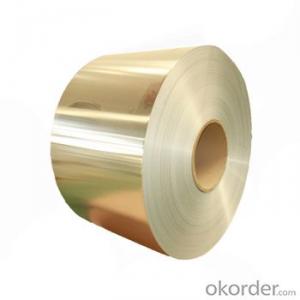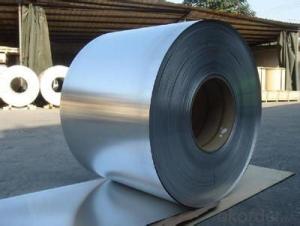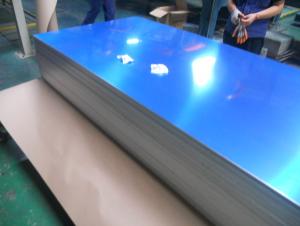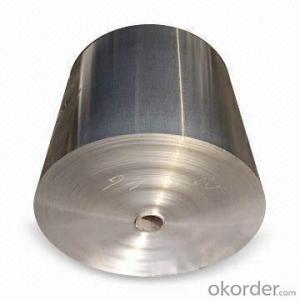Coiled Aluminum Direct Casting DC Coils and Rolls
- Loading Port:
- Shanghai
- Payment Terms:
- TT or LC
- Min Order Qty:
- 50 m.t.
- Supply Capability:
- 50000 m.t./month
OKorder Service Pledge
OKorder Financial Service
You Might Also Like
1.Specification
ALUMINIUM COIL
ALLOY: AA1***
AA3***
AA5***
TEMPER: H14 H16 H18 H22 H24 H26 H32 O/F
THICKNESS:0.03MM-3.0MM
WIDTH: 30MM-1700MM
COATING: PE(POLYESTER),PVDF,EPOXY
STANDARD: GB/T 17748-1999
2.Description
In Europe aluminium experiences high rates of recycling, ranging from 42% of beverage cans, 85% of
construction materials and 95% of transport vehicles.Recycled aluminium is known as secondary aluminium, but maintains the same physical properties as primary aluminium. Secondary aluminium is produced in a wide range of formats and is employed in 80% of alloy injections. Another important use is for extrusion.
White dross from primary aluminium production and from secondary recycling operations still contains useful quantities of aluminium that can be extracted industrially.The process produces aluminium billets, together with a highly complex waste material. This waste is difficult to manage. It reacts with water, releasing a mixture of gases (including, among others, hydrogen, acetylene, and ammonia), which spontaneously ignites on contact with air;contact with damp air results in the release of copious quantities of ammonia
gas. Despite these difficulties, the waste has found use as a filler in asphalt and concrete.
3.Why you can choose us?
We can promise the best quality and price!
4.Pictures
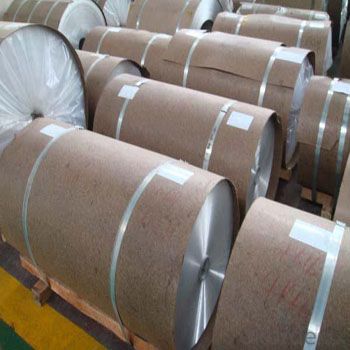
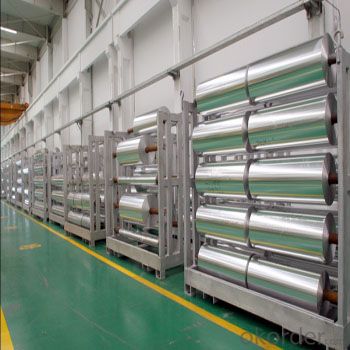
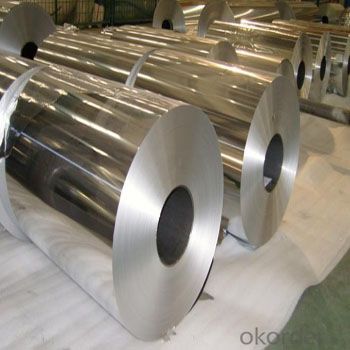
5.FAQ:
1)what is aluminum?
Aluminium (or aluminum; see spelling differences) is a chemical element in the boron group with symbol Al and atomic number 13. It is a silvery white, soft, nonmagnetic, ductile metal. Aluminium is the third most abundant element (after oxygen and silicon), and the most abundant metal in the Earth's crust. It makes up about 8% by weight of the Earth's solid surface.
Aluminium metal is so chemically reactive that native specimens are rare and limited to extreme reducing environments. Instead, it is found combined in over 270 different minerals.The chief ore of aluminium is bauxite.
2)What's kind of payment term we can supply?
CIF,CFR, FOB and other.
3)Can we supply samples?
Yes, we can!
- Q: What is the shear strength of aluminum coils?
- Various factors, such as alloy composition, temper, thickness, and processing conditions, can cause the shear strength of aluminum coils to vary. When compared to materials like steel or titanium, aluminum alloys generally have lower shear strength. However, the primary considerations for using aluminum coils are their lightweight nature, corrosion resistance, and malleability, rather than their shear strength. To obtain a more precise answer, it is necessary to specify the exact alloy, temper, and dimensions of the aluminum coil in question. These factors greatly impact the shear strength of the material. Additionally, it is important to note that factors like impurities, heat treatment, and the manufacturing process employed can influence shear strength. In conclusion, the shear strength of aluminum coils can differ based on various factors, and it is crucial to consider the specific alloy, temper, and dimensions to determine the exact strength of the material for a given application.
- Q: This question asks if aluminum coils are susceptible to rusting.
- <p>Aluminum coils do not rust in the traditional sense. Aluminum reacts with oxygen in the air to form a thin, protective layer of aluminum oxide on its surface, which prevents further corrosion. This oxide layer is different from rust, which is iron oxide. While aluminum can tarnish or corrode under certain conditions, such as exposure to certain chemicals or harsh environments, it does not rust like iron or steel. Proper storage and handling can help maintain the integrity of aluminum coils and prevent any form of corrosion.</p>
- Q: What is the typical price gap between purchasing new aluminum coils versus used ones?
- <p>The price difference between new and used aluminum coils can vary significantly based on factors such as the quality of the used coils, market demand, and the specific grade of aluminum. On average, used aluminum coils can be 20-50% cheaper than new ones. However, this is a broad estimate and actual prices can fluctuate. It's essential to check current market prices and consider the condition of the used coils before making a purchase decision.</p>
- Q: Is there any way aluminum can affect you if its absorbed into your body either by digestion, through an open cut, or even through breathing it in?Most likely inhaling it would surely affect you, but what about the other two?
- Aluminium can accumulate in the brain possibly causing alzheimers. If you inhaled it it would poison you and damage your lungs, if you got it in your body it would damage your skin, possibly cause an infection and the cut might not heal. Aluminium is a solid so how could you accidently get it in your body unless you have been melting it etc? If it wasn't solid it would burn you if you got it on your skin. You can only inhale vapours not a metal. If you ate it then it would probably damage or clog up your insides otherwise just pass out in a stool, depends how much you ate. People eat from aluminium and touch it every day so it is not dangerous to be in contact with.
- Q: Are aluminum coils suitable for corrosion-resistant applications?
- Yes, aluminum coils are suitable for corrosion-resistant applications. Aluminum has natural corrosion-resistant properties as it forms a protective oxide layer when exposed to air, which prevents further corrosion. Additionally, aluminum can be further enhanced with various coatings or treatments to increase its resistance to corrosion, making it a suitable choice for applications where corrosion resistance is required.
- Q: What are the common surface finishes for aluminum coils in the automotive industry?
- In the automotive industry, aluminum coils are widely used for various applications due to their lightweight, high strength, and corrosion resistance properties. To enhance their appearance and protect them from environmental factors, aluminum coils in the automotive industry often undergo surface finishes. One of the most common surface finishes for aluminum coils in the automotive industry is anodizing. Anodizing is an electrochemical process that creates a thin protective layer on the surface of the aluminum coil. This finish not only provides excellent corrosion resistance but also allows for color customization, making it a popular choice for automotive applications. Anodized aluminum coils can be found in various colors and finishes, adding aesthetic appeal to the vehicles. Another commonly used surface finish for aluminum coils in the automotive industry is powder coating. Powder coating involves applying a dry powder paint onto the surface of the aluminum coil and then curing it under heat to create a durable, long-lasting finish. Powder coating provides excellent resistance to chipping, scratching, and fading, making it ideal for automotive components that are exposed to harsh conditions and require a high level of durability. Additionally, powder coating offers a wide range of color options, allowing manufacturers to achieve the desired aesthetic appearance. Furthermore, aluminum coils in the automotive industry may also undergo other surface finishes such as laminating, painting, or polishing, depending on the specific application requirements. Laminating involves bonding a thin protective film onto the surface of the aluminum coil to provide additional protection against abrasion and chemical exposure. Painting involves applying liquid paint onto the surface of the aluminum coil, allowing for customization and protection against corrosion. Polishing is a mechanical process that enhances the surface smoothness and appearance of the aluminum coil, providing a reflective and shiny finish. In summary, the common surface finishes for aluminum coils in the automotive industry include anodizing, powder coating, laminating, painting, and polishing. These finishes not only enhance the appearance of the aluminum coils but also provide protection against corrosion, abrasion, and other environmental factors, making them essential in the manufacturing of automotive components.
- Q: Are aluminum coils suitable for food processing applications?
- Food processing applications can benefit from the use of aluminum coils. Aluminum is a versatile material widely utilized in the food industry for its advantageous properties. It is resistant to corrosion, non-toxic, lightweight, and possesses exceptional thermal conductivity. These qualities make aluminum coils perfect for various food processing tasks like cooking, storage, and transportation. Aluminum coils find their application in the production of cookware, food packaging, and food processing equipment. They are frequently employed in the manufacturing of kitchen utensils such as pots, pans, baking sheets, and more. The remarkable thermal conductivity of aluminum ensures uniform distribution of heat, enabling efficient cooking and eliminating hot spots. Moreover, aluminum coils are commonly utilized in food packaging, including beverage cans and canned foods. Aluminum cans are lightweight, durable, and provide a protective barrier against light, moisture, and air, thus preserving the quality and freshness of the food products. Additionally, aluminum coils are suitable for food processing equipment like heat exchangers, evaporators, and refrigeration systems. The corrosion-resistant nature of aluminum prevents contamination, thereby ensuring the hygiene and safety of the processed food. It is crucial to note that aluminum coils utilized in food processing applications must meet specific food-grade standards to ensure they do not release any harmful substances into the food. These standards are set by regulatory bodies like the Food and Drug Administration (FDA) in the United States and similar organizations globally. Overall, due to their corrosion resistance, non-toxicity, lightweight, and excellent thermal conductivity, aluminum coils are highly suitable for food processing applications. Their extensive usage in the food industry for cooking, packaging, and processing equipment significantly contributes to the safety and efficiency of food production.
- Q: What are the different coil annealing options available for aluminum coils?
- For aluminum coils, there are multiple options for coil annealing, depending on the desired outcome and requirements. 1. Full Annealing: To achieve a soft and fully recrystallized structure, the aluminum coil is heated to a specific temperature and then slowly cooled down. This process helps relieve internal stresses, improve ductility, and enhance the mechanical properties of the coil. 2. Solution Annealing: This method is primarily used for heat-treatable aluminum alloys. It involves heating the coil above the alloy's solvus temperature and then rapidly cooling it. By doing so, any alloying elements are dissolved and redistributed, resulting in a homogenous microstructure. 3. Stabilization Annealing: Certain aluminum alloys undergo stabilization annealing to enhance dimensional stability and reduce the risk of distortion during subsequent processing or usage. The coil is heated to a temperature slightly below the alloy's recrystallization temperature and then slowly cooled. 4. Stress Relief Annealing: This type of annealing is performed to relieve residual stresses that may have developed during previous manufacturing processes. By heating the coil to a specific temperature and holding it there for a certain duration, the stresses are allowed to relax. This improves the coil's formability and minimizes the risk of deformation during subsequent operations. 5. Intermediate Annealing: During the manufacturing process, intermediate annealing is used to restore the ductility and formability of the aluminum coil. The coil is heated to a temperature below the recrystallization temperature and then undergoes a controlled cooling process. This eliminates any work hardening that may have occurred during previous operations. These are just a few of the common coil annealing options available for aluminum coils. The choice of annealing method depends on factors such as the alloy composition, intended application, and desired material properties. It is advisable to consult with experts or heat treatment professionals to determine the most suitable annealing method for a particular aluminum coil.
- Q: What are the different surface finishes for pre-painted aluminum coils?
- Pre-painted aluminum coils offer a variety of surface finishes to enhance their appearance, durability, and resistance to external factors. The most commonly used finish is Polyester (PE), which provides good durability, weather resistance, and color retention. It is available in a wide range of colors and gloss levels. Another popular option is Polyvinylidene Fluoride (PVDF) finish, known for its excellent resistance to weathering, UV radiation, and chemicals. It maintains color and gloss for extended periods, making it ideal for architectural applications. Polyurethane (PU) finish is preferred for its resistance to abrasion, chemicals, and weathering. It offers a smooth and glossy appearance and is available in various colors. PU finish is commonly used in outdoor applications that require high durability. Epoxy (EP) finish is known for its excellent chemical resistance and adhesion. It is often used in industrial applications where corrosion resistance is crucial. It can be combined with other coatings to enhance its performance. Acrylic (AC) finish provides good weather resistance and color retention. It is commonly used in architectural applications where aesthetics and durability are important. Acrylic finish offers a glossy appearance and a wide range of colors. These examples demonstrate the range of surface finishes available for pre-painted aluminum coils. The choice of finish depends on specific requirements, including desired appearance, durability, and resistance to external factors.
- Q: Are aluminum coils suitable for architectural sunshades?
- Yes, aluminum coils are suitable for architectural sunshades. Aluminum is a lightweight and durable material that can withstand various weather conditions. It is also corrosion-resistant, making it ideal for outdoor applications. Additionally, aluminum coils can be easily formed and shaped to create customized designs for sunshades, providing both functionality and aesthetic appeal.
Send your message to us
Coiled Aluminum Direct Casting DC Coils and Rolls
- Loading Port:
- Shanghai
- Payment Terms:
- TT or LC
- Min Order Qty:
- 50 m.t.
- Supply Capability:
- 50000 m.t./month
OKorder Service Pledge
OKorder Financial Service
Similar products
Hot products
Hot Searches
Related keywords
